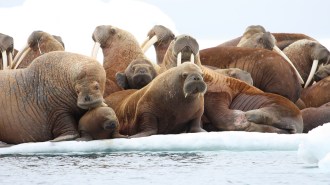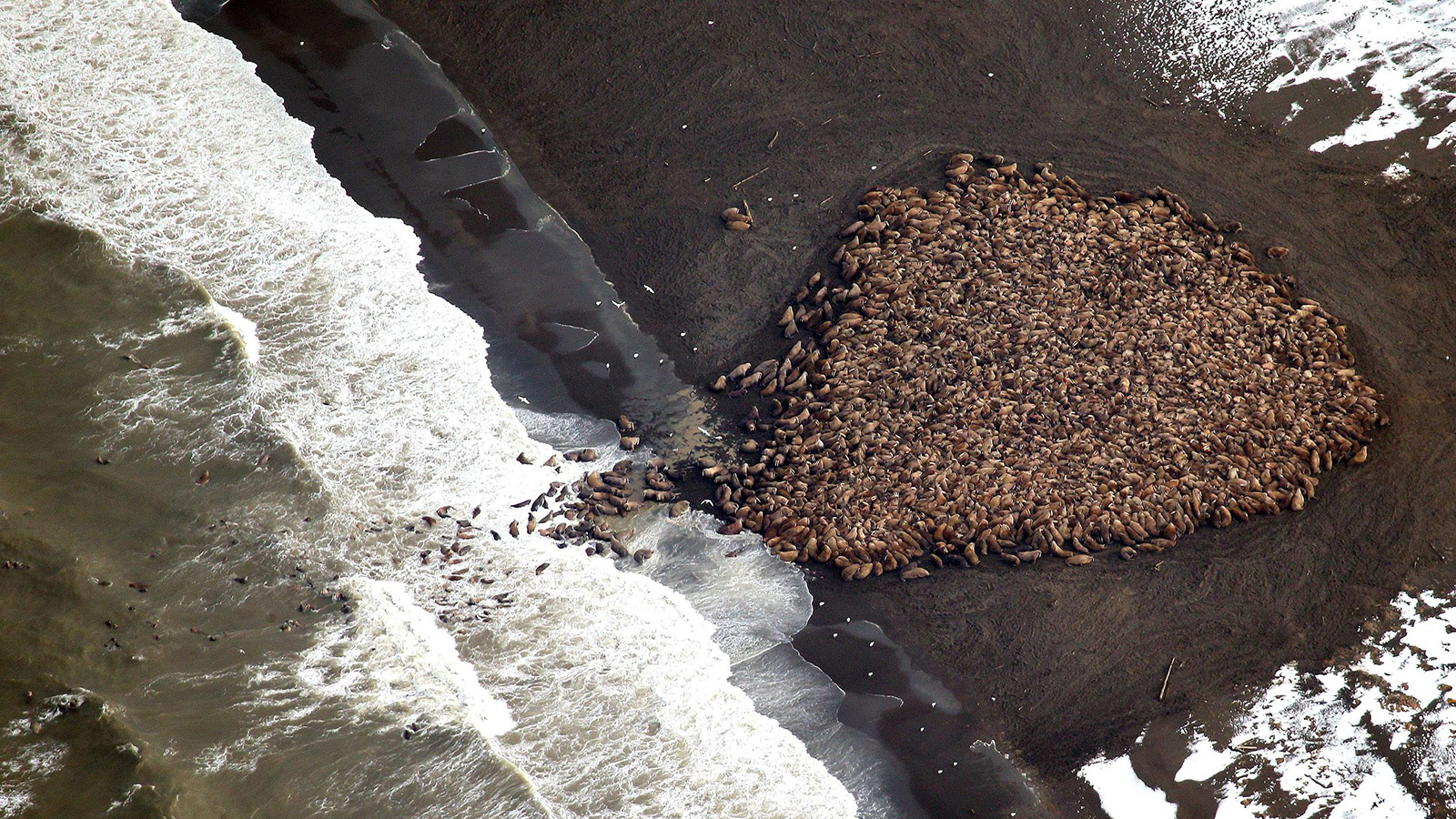The People’s Climate March had more impressive numbers, but Pacific walruses sure have us beat on color coordination. This September, more than 35,000 of these flabby, whiskered pinnipeds have crowded a beach on the northwestern Alaskan island of Point Lay. Scientists are calling it potentially the biggest walrus haul-out on record — and they’re blaming it on climate change.

USGS / S.A. SonsthagenWalruses, chillin’ like they supposed to.
Walruses typically follow sea ice as it recedes to the North Pole, where they use the floating platforms for resting, giving birth, and raising pups. But the dearth of sea ice (September had the sixth-lowest extent of sea ice on record) forces Pacific walruses to swim long distances to reach solid ground on the coasts of Russia and Alaska. Brad Plumer at Vox has the full charty, facty version:
Similar walrus haul-outs have been happening since Arctic sea ice hit an unexpected low in 2007. Indeed, in six of the past eight years, the Chukchi sea ice has receded far enough that walruses have had to swim to land.
In 2010, some 20,000 walruses came ashore near Pt. Lay. In 2011, nearly 30,000 came ashore. (You can watch a video of that one here.) In 2013, another 10,000 came ashore. This year appears to be the largest haul-out on record, although NOAA is still trying to verify the exact numbers.
Worse, when climate forces walruses to assemble en masse, it’s not all giant floats and drum circles. Researchers think walruses on land are much more likely to trample each other than on ice (especially if they get spooked). Gah.
Still, if we’re taking bets on which march had the better group chants and rallying cries, I’m betting on the walruses:



